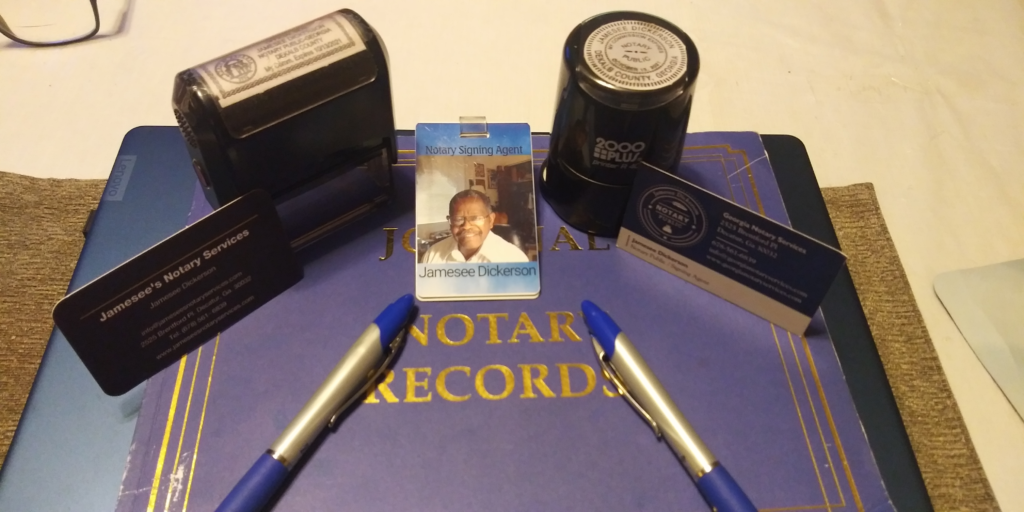
Introduction
The following is a description of a Notary Public in Georgia:
A Notary Public is a person authorized to perform certain legal formalities, especially to draw up or certify contracts, deeds, and other documents for use in other jurisdictions.
A Notary Public is a person authorized to perform certain legal formalities, especially to draw up or certify contracts, deeds, and other documents for use in other jurisdictions.
In most countries the term notary public is synonymous with “notary” and it’s commonly used in both speech and writing. However, it has no equivalent meaning in civil law systems as those countries do not have this historical feature of common law called “notarial system”.
Notaries public are appointed by the Secretary of State.
To become a notary public in Georgia, you must:
- Be a resident of Georgia.
- Be at least 18 years old.
- Be a U.S. citizen with no felony convictions on your record (unless pardoned).
- Have had your identity verified by the Secretary of State or other designated officials in the county where you reside and meet one of the following requirements:
- Attain a score of 650 or higher on each part of the exam taken from an approved testing service such as Pearson VUE; or
- Complete an educational course on notarial law through one of these approved providers:
a) American Institute Notaries (AIN);
b) National Notary Association (NNA);
Each notary public applicant must be a Georgia resident and have no felony convictions.
The notary public applicant must be a Georgia resident, at least 18 years of age and must have no felony convictions. In addition, the notary public applicant must be a citizen of the State of Georgia.
All applicants for appointment as a Notary Public in this state shall make application to the Secretary of State (or his designee), complete with all required information and documents required by § 50-13-1 et seq., O.C.G.A., which are incorporated herein by reference as if fully set forth herein; provided that any person who is currently serving as Deputy Clerk or Assistant Clerk in any capacity within any county court system may submit an original oath with certification from the chief judge or clerk certifying their service as such without having first obtained an appointment from the Secretary of State (or his designee).
A notary public’s jurisdiction extends throughout the state.
A notary public’s jurisdiction extends throughout the state. This means that all notaries public in California may perform their duties anywhere in the state, whether or not they are physically present at the location where the act is performed. Thus, if you are located in Los Angeles and need to have a document certified by a notary public who lives on the other side of the San Francisco Bay Area, it’s perfectly legal for you to request this service from your local secretary of state branch office (assuming that branch office has its own power over appointment).
The term of office of a notary public is four years from the date of appointment.
A notary public is an officer authorized to take acknowledgements of deeds, mortgages and other conveyances; administer oaths and affirmations; take depositions to be used in courts of justice; protest bills of exchange or promissory notes when there appears on the face thereof some irregularity or defect not apparent from the endorsement thereon; and certify true copies of any paper writing which he may have executed for any person.
The term of office for a notary public is four years from date of appointment by the Secretary of State.
A person who desires to become a Notary Public must file an application with The Secretary Of State’s Office along with two passport size photographs and one letter from current employer verifying employment status.
A notary public may execute an official seal as required by law on documents he or she has executed.
If a notary public is required to affix an official seal, he or she may do so in the presence of the person who signs the document. If such an individual is physically incapacitated and unable to be present when the seal is affixed, another witness must be present and attest to this fact.
In addition to using a stamp-type device, some states permit their notaries public to use hand stamps which make impressions on documents. These impressions are made by impressing ink or paint into paper or parchment documents that have been signed by people seeking them due to being important legal documents. It may also include embossing seals into paper or parchment documents that have been signed by people seeking them due to being important legal documentation for proof purposes later down road when needed in court cases involving fraudulent allegations against one another as well as other types of disagreements between two parties over business contracts that need resolving quickly before any further damage occurs financially at stake here.”
A notary public may charge a fee for each signature acknowledged. However, if you are receiving more than $1,000 in cash for your signature, then you must sign in the presence of two witnesses who are signing as well.
.
An appointment as a notary public is issued for the purpose of allowing the notary to administer oaths and affirmations and to take acknowledgments of deeds, mortgages and other conveyances.
- The notary public is a public official who is authorized to perform certain legal formalities.
- The notary public is authorized to draw up or certify contracts, deeds, and other documents.
- The notary public is authorized to administer oaths and affirmations.
Conclusion
Notary Publics have been around for a long time, but they’re still needed today. They help take the guesswork out of transactions and make sure that everything goes smoothly.
